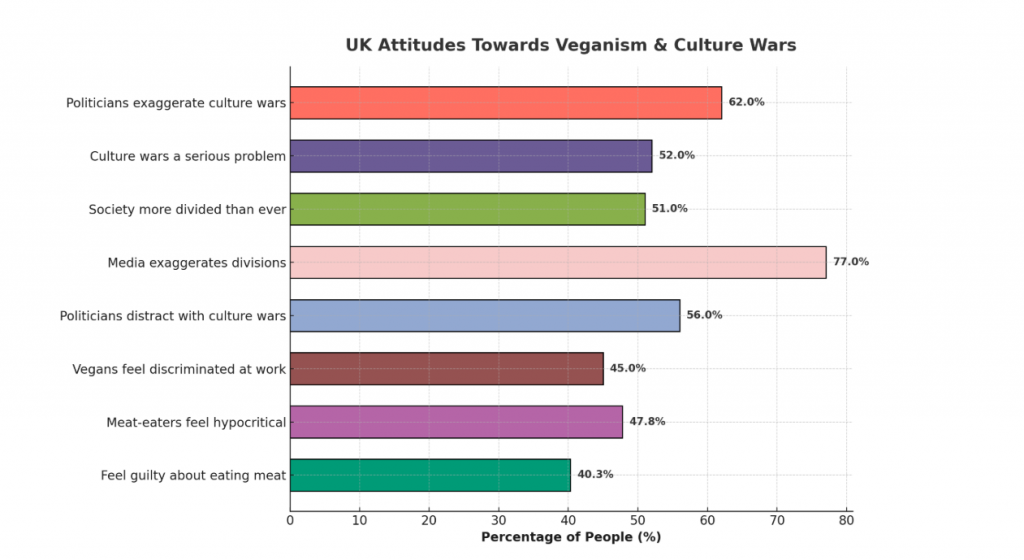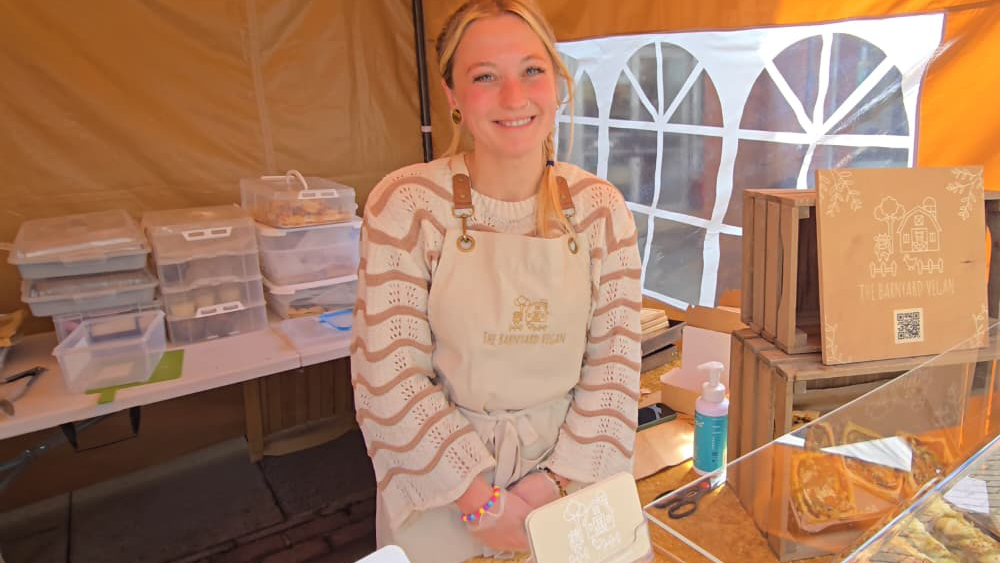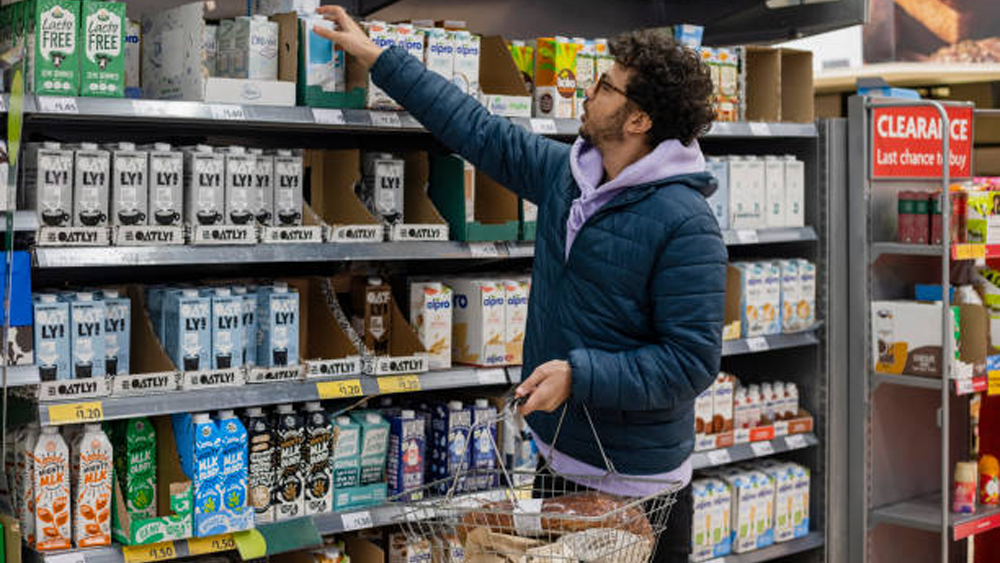When Conservative MPs brand plant-based eating as ‘extremist ideology’ and TV hosts mock vegan products as threats to British values, the question isn’t whether veganism belongs in culture wars , it’s who profits from making your dinner plate a political battlefield

In the polarised landscape of modern Britain, few issues generate as much heat as veganism. What began as a personal ethical choice has been systematically transformed into a weapon of cultural warfare, with politicians and media figures deliberately stoking division for political gain.
In January 2019, a vegan sausage roll became the most profitable controversy in British media. According to a Nature academic paper on vegan culture wars, “the release of the vegan sausage roll boosted Greggs’ sales by 58% in the first half of 2019″. Media figures like Julia Hartley-Brewer have systematically targeted veganism, casually lumping together “vegan cafe owners” with “climate doom mongers” and gleefully mocking climate protesters spotted “queuing for lunch at McDonald’s.”
Behind Britain’s vegan culture wars lies a carefully orchestrated system where controversy converts directly into cash, and your dinner plate becomes a political ATM.
How Culture Wars Generate Revenue
Bobby Duffy, Director of the Policy Institute at King’s College London, explains the systematic nature. “It tends to be more progressive values or behaviors that are pulled into culture wars. So, you know, it is about recognition of different sexualities and gender identities and you know, different views of history so you can see how veganism as a more emergent trend where older generations would have been much less exposed to it as an idea, would find it less core to their culture.”
“We’ve almost got an information environment now where politics, media and social media feed off and reinforce each other, where it can either start from politicians and be amplified, or politicians can see it on social media and media and then jump on that bandwagon and then reinforce it so I don’t. I think you got to view them as a system really, rather than separate effects,” he says.
These findings align with official UK government data. According to the Office for National Statistics’ November 2024 Public Opinions and Social Trends survey, 77% of Britons believe media exaggerates divisions, while 62% say politicians exaggerate culture wars as a political tactic. The data reveals the human cost of this manufactured conflict: 45% of vegans report feeling discriminated against at work, while 47.8% of meat-eaters acknowledge feeling hypocritical about their choices, and 40.3% feel guilty about eating meat.
According to research from King’s College London, the public is increasingly recognising this manipulation. “Six in 10 (62%) people now agree politicians invent or exaggerate culture wars as a political tactic, up from around four in 10 (44%) in 2020.”

The Political Revenue Machine. Converting Dietary Choices Into Electoral Gold
The most recent example came in April 2025 when Conservative Shadow Business Secretary Andrew Griffith appeared on BBC’s Sunday show. According to multiple news reports, Griffith stated. “I think the Liberal Democrats are quite extremist. Whenever they get into council, they want four-day weeks and veganism.”
Damian Watson, Senior Media & PR Officer from the Vegan Society, said, “He went straight on the attack and talked about the Liberal Democrats as being extremists who want a four day working week. Sounds good to me. And veganism. I was watching this and I thought “hang on, he’s just called me an extremist.”
When challenged, the politician doubled down for profit. Watson describes what happened next. “So we requested an apology from Mr. Griffith. We wrote to him and requested an apology, which he refused to give. So we published our request for an apology on our website. He then demanded we take down our request for an apology, which we refused to do. And in the end he went quiet and nothing further happened.”
Watson explains the calculated nature. “Had Mr. Griffith gone on air and said, yes, the Liberal Democrats support their extremists who support Islam, he would never have dreamt of saying that in a million years, nor would he have been allowed to get away with it.”
The Vegan Society itself profits from this dynamic. “Veganism is an ethical belief. It’s protected by the 2010 Equality Act. Just as a religion might be, so it is actually against the law to victimize vegans because of their ethical beliefs, so that’s why we exist, to try to help vegans who are feeling victimized,” he said.
The electoral payoff is clear. “Conservative voters (27%) are around five times as likely as Labour voters (5%) to select culture war issues as deciding their vote.”
The Farming Industry’s £120 Billion Defense
According to industry analysis, “farming and agriculture is worth a whopping £120 billion to the UK economy, employing over four million people”. This massive economic interest requires systematic defense against perceived threats.
The National Farmers Union systematically attacks Veganuary as a ‘gimmick,’ claiming “UK greenhouse gas emissions from beef production are half that of the global average”, protecting an industry where “between 2020 and 2023, 19% of mixed farms operated at a loss, and 23% reported profits under £25,000.”
The Agricultural and Horticultural Development Board (AHDB) launched ‘We Eat Balanced’ counter-campaigns, with marketing director Liam Byrne stating. “January is a key time of year for the campaign to run, as there is a greater emphasis on the ‘reduce meat and dairy’ message to consumers through the campaign we are giving farmers a platform and a voice to present the facts about food and farming from the UK.”

The Rural Economic Defense. Jobs vs. Ideology
The farming crisis reveals the economic stakes. “What if current government measures result in 5% of farmers leaving the industry? That would mean the closure of approximately 10,450 farms, potentially leading to widespread job losses and a significant hit to our food security.”
Rural economic challenges extend beyond farming. “Problems with infrastructure, housing and access to services have all been identified as barriers to economic growth in rural areas.” At the same time, surveys find “around 66% of 18–24-year-olds living in rural areas said they were considering leaving in the next 12 months.”
At the Oxford Farming Conference, farmer advocates argued that “generations of hill farmers had preserved the land and how nature and farming can live as one consumer might need to eat less meat for it to be sustainable in the long run, but consumers would not turn their backs on it altogether.”
The Vegan Business Reality
Despite systematic opposition, vegan businesses report growing market demand. Watson notes the commercial scale.
“Our latest research, which is available via our website, surveyed more than ten thousand people. So an enormous sample size. And that tells us there are about two million vegans or people following a plant based diet, that’s about three percent of the population.”
Jessica Taylor, who runs The Barnyard Vegan in Pembrokeshire, describes the commercial reality. “I always put testers out to get people to try it, because I think they do sort of have that mindset. Like I get people walk past and they sort of like if they see that it’s vegan, they’re like, oh no, they won’t try it. So that’s why I don’t try to plaster vegan everywhere because it gets people in and then they try it and they’re like, oh, it does actually taste nice.”
She further adds, “I think when I started like eight years ago, I used to get a lot more comments. Even like my family, some of my family were like, what? What is veganism? A lot of people didn’t really understand it, whereas you don’t get that as much. Now people know what being a vegan is.”
Lybi Maddock Muren, who is running a home vegan cake business, also explains the backlash. “I think there was a rise in veganism, and I think there’s been a pushback. And it’s with anything when something starts to sort of become more fair for one group. So in this case, it’s animals. They’ll be pushed back from people who don’t want that change for whatever reason. So you’ve got the animal agriculture industry. You’ve got all those that benefit from people not being vegan pushing back.”

The Media Profit Engine
GB News represents a significant investment in culture war content, backed by Sir Paul Marshall’s hedge fund fortune, creating a right-wing media ecosystem. The channel regularly features “heated debates over vegan campaigns, with hosts challenging what they see as ‘brainwashing’ content.”
Watson observes systematic bias. “The media in the UK is very polarised, so there will always be. And there’s a perception of course that vegans are all left leaning whenever there’s a negative headline or story about veganism in the British media, it will tend to come from those sort of right leaning organizations like the Daily Mail or GB news.”
The distortion serves commercial interests through manufactured controversy.
Watson describes a recent example. “The actual conclusion of this report was that there can be nutritional concerns if dairy milk is replaced with sweetened, unfortified, plant based alternatives. However, if unsweetened and fortified plant milk is given to children over the age of one year old, then that is a safe alternative to cows milk. That was the conclusion of the report, but all the headlines were completely different.”
When challenged. “So we wrote to the likes of the Daily Telegraph and the Daily Mail, the usual suspects, even the Independent on this occasion to say, hang on a second. That’s your side of the story. You’re cherry picking a headline. We’ll give you the facts here, and we’d be grateful if you’d report those facts. And they didn’t.”
The Psychology of Profitable Division
The culture war’s profitability depends on triggering defensive reactions. Maddie from Swansea, who runs a vegan skincare business named Lilith Natural Beauty explains, “I think I know people hate vegans because it makes other people question their own morals. And when they’ve been raised on a meat eating lifestyle for however many years. As soon as somebody makes you question the way that you’ve lived your life, people get defensive and you don’t like it.”
Duffy confirms this mechanism. “UK comes top of saying that political correctness has gone too far out of dozens of countries. And so we have got a section of the UK public who have quite a cynical view of people trying to be too politically correct, and I suspect that the anti veganism is related to that motivation.”

The Government’s Divide-and-Profit Strategy
Maddie identifies the deeper political economy. “ With politics, governments will remain in power if they divide us. So the best way to stay in power. Staying in control is to make everybody hate each other. So it’s whether you vote for this or that party, whether you believe in this thing, whether you believe vegan or not, they will do everything in their power to divide the masses, to keep it under control, basically.”
While Duffy warns about the dangerous endgame of this strategy. “The extent to which veganism gets pulled into a culture war identity, then that’s not a positive thing, because it’s kind of people who may have more traditionalist attitudes on other things may well want to be vegan, but if it becomes more and more about, you have to pick one side or the other on all of these things, then that’s not good. That’s not good for them. It’s not good for society overall that you have to sign up to a whole club.”
The Complete Profit Ecosystem
The evidence reveals multiple actors profiting from manufactured divisions. The farming industry generates “£120 billion to the UK economy, employing over four million people”, while right-wing media companies invest millions in culture war content targeting conservative audiences. Politicians gain electoral advantage from culture war positioning, and even vegan organizations build institutional revenue around protecting their £2 million demographic.
As Duffy said. “you will find vested interests , commercial vested interests on either side of a culture war. It’s ones that are pushing for progress. There are also commercial organizations who will make money out of that but there are also ones who will lose money.”
As long as dietary choices generate more revenue as weapons than as personal decisions, Britain’s dinner plates will remain political battlegrounds and the profits will keep flowing to those who benefit from keeping the country divided, whether they’re defending traditional farming livelihoods or building new vegan market share.